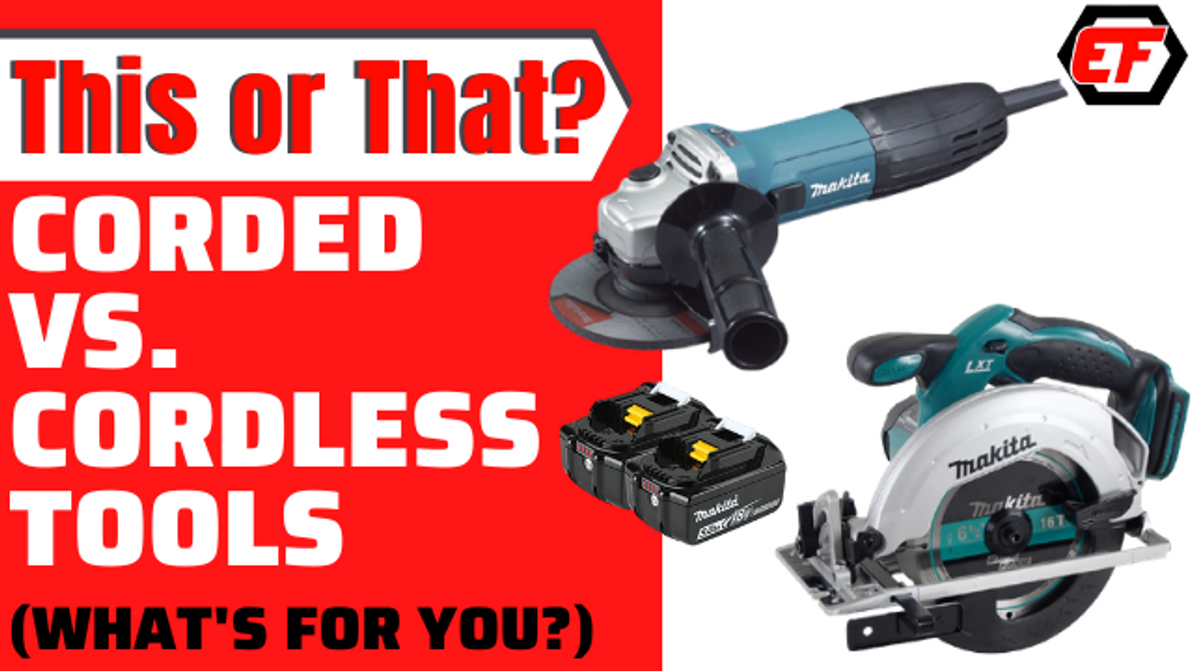Corded vs. Cordless Tools - What’s Right for You?
When it comes to power tools, the debate between corded and cordless models has been ongoing for years. Many people see corded tools as outdated, less convenient, and less advanced. On the other hand, cordless tools are often viewed as more modern, portable, and user-friendly. But is this comparison accurate? It depends on your needs and the type of work you're doing.
Power tools come in many forms, and each has its own set of advantages and disadvantages. While convenience and ease of use are important factors, reliability and performance should also be considered. In this post, we’ll break down the pros and cons of both corded and cordless tools so you can make an informed decision based on your specific project requirements.
Corded Tools: Power That Never Fades
The biggest advantage of corded tools is that they never run out of power. As long as they’re plugged into a power source, they deliver consistent performance without the worry of a dead battery. They also tend to provide more torque and power compared to their cordless counterparts, making them ideal for heavy-duty tasks like cutting through thick materials or driving large screws.
However, corded tools do have some limitations. Their mobility is restricted by the length of the power cord, which can be inconvenient if you're working in a remote area or need to move around frequently. Additionally, managing the cord can be messy, especially when working with multiple tools. You also need to be close to an electrical outlet, which might not always be practical.
Cordless Tools: Freedom Without the Wires
Cordless tools offer unmatched portability and flexibility. With no cords to worry about, you can take them anywhere—whether you're working in a garage, on a construction site, or even outdoors. Modern cordless tools are also more powerful than ever, thanks to advancements in battery technology. Many batteries now last longer and hold their charge for weeks, reducing the need for frequent recharging.
Despite their benefits, cordless tools do have a few drawbacks. The main one is the need to manage and recharge batteries. If you forget to charge your tool before a job, you could be left waiting for it to power up. Also, while battery life has improved, high-demand tasks may still drain the battery faster than expected.
Ultimately, the choice between corded and cordless tools comes down to your personal preferences and the nature of your work. If you value constant power and strength, corded tools may be the way to go. If mobility and convenience are more important, cordless tools might be your best bet.
If you're still unsure, reach out to our team at Edmonton Fasteners. We can help you choose the right tools for your next project.
